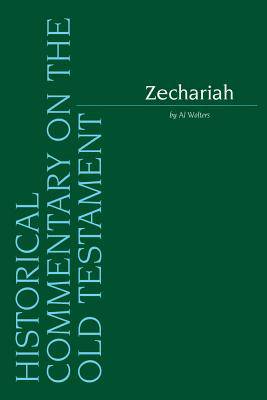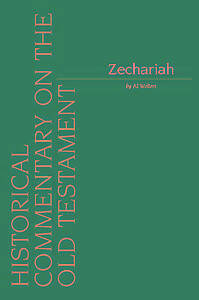
Door een staking bij bpost kan je online bestelling op dit moment iets langer onderweg zijn dan voorzien. Dringend iets nodig? Onze winkels ontvangen jou met open armen!
- Afhalen na 1 uur in een winkel met voorraad
- Gratis thuislevering in België vanaf € 30
- Ruim aanbod met 7 miljoen producten
Door een staking bij bpost kan je online bestelling op dit moment iets langer onderweg zijn dan voorzien. Dringend iets nodig? Onze winkels ontvangen jou met open armen!
- Afhalen na 1 uur in een winkel met voorraad
- Gratis thuislevering in België vanaf € 30
- Ruim aanbod met 7 miljoen producten
Zoeken
€ 74,00
+ 148 punten
Omschrijving
The contribution of this commentary to the understanding of the book of Zechariah is mainly in four areas. The first is close attention to philological detail, with a special focus on textual criticism, lexical semantics, and literary wordplay. A second area of interest is in the history of interpretation of the book, and takes into account a wide range of exegetical material, from rabbinic and patristic times to the present. A third area of interest is in intertextuality. Many passages become fully intelligible only when they are understood as alluding to earlier Scripture. Finally, the commentary has an interest in Christian theological interpretation. The commentary is also remarkable in that it breaks with the traditional division of the book into two parts, and argues that it consists instead of three independent and quite different parts, each of which is attributable to the prophet after whom the book is named.
Specificaties
Betrokkenen
- Auteur(s):
- Uitgeverij:
Inhoud
- Aantal bladzijden:
- 527
- Taal:
- Engels
- Reeks:
Eigenschappen
- Productcode (EAN):
- 9789042930704
- Verschijningsdatum:
- 7/07/2014
- Uitvoering:
- Paperback
- Formaat:
- Trade paperback (VS)
- Afmetingen:
- 157 mm x 239 mm
- Gewicht:
- 816 g

Alleen bij Standaard Boekhandel
+ 148 punten op je klantenkaart van Standaard Boekhandel
Beoordelingen
We publiceren alleen reviews die voldoen aan de voorwaarden voor reviews. Bekijk onze voorwaarden voor reviews.











